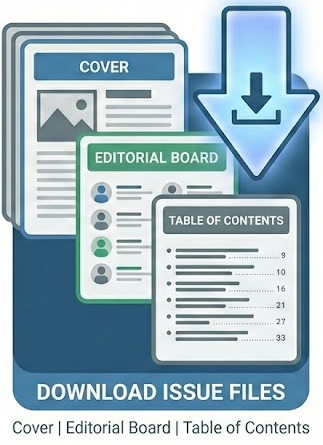Development of Biology Practicum Guide to the Concept of the Digestive System in Developing Critical Thinking Students'
DOI:
https://doi.org/10.30736/seaj.v4i1.507Keywords:
Critical Thinking Skills, Biology Practicum Guide, R&D, Digestive SystemAbstract
The aim of the study is to develop a biology practicum guide on the concept of the digestive system to develop students' critical thinking skills, to determine eligibility, and to determine student responses to the biology practicum guide. The research method is the research and development (R&D) method by using the Sugiyono model. The research was conducted in October 2021 at SMAN 2 Serang City. The population in the study was 10 students from class XI SMAN 2 at Serang City High School, school year 2021/2022. Data retrieval and collection techniques are carried out by spreading questionnaires and interviews, while data analysis techniques using guttman scales and likert scales are used to test the feasibility of the biology practical guides that have been created. The validity assessment from the material expert for the Biology Practicum Guide received a score of 85% and the score from the media expert got a score of 86%. Both values are very feasible in the category. The result of the students' response test was a 98.6% score, which was very feasible in the category. Thus, it can be concluded that the Biology Practicum Guide on the concept of the digestive system was very feasible to use to develop critical thinking skills in students.Downloads
References
Arikunto, S. (2012). Dasar-Dasar Evaluasi Pendidikan Edisi 2. Jakarta: Bumi Aksara.
Borg, W. R. & Gall, M. D. (2003). Educational research: an introduction 4th Edition. New York: Longman Inc.
Ennis, R. (2011). The Nature of Critical Thinking Deisposition and Abilities. Diakses dari https://education.illinois.edu/docs/default-source/faculty documents/robert-ennis/thenatureofcriticalthinking_51711_000.pdf, Pada tanggal 15 Desember 2021, pk 9.47.
Hamidah, A., E. N. Sari & R. S. Budianingsih. (2014). “Persepsi Siswa Tentang Kegiatan Praktikum Biologi di Laboratorium SMA N Se-Kota Jambiâ€. Jurnal Sainmatika, 1(8), 49-59.
Hyytinen, H., Nissinen, K., Ursin, J., Toom, A., & Lindblom-Yla¨nne, S. (2015). “Problematising the equivalence of the test results of performance-based critical thinking tests for undergraduate studentsâ€. Studies in Educational Evaluation, 4 (44) 1-8.
Mislia., M. Qurbaniah & A. P. Kahar. (2017). “Pengembangan Petunjuk Praktikum Biologi Berbasis Inkuiri Terbimbing Pada Materi Sistem Pencernaanâ€. Jurnal Bioeducation, 1 (4), 13-17.
Purwanto, A. & R. Sasmita. (2013). “Pembelajaran Fisika Denga Menerapkan Model Inkuiri Terbimbing Dalam Menumbuhkan Kemampuan Berfikir Logis Siswa di SMA Negeri 8 Bengkuluâ€. Jurnal Unnes Science Education, 2 (1), 14.
Rahmawati, I., Arif H., & Sri R. (2016). “Analisis Keterampilan Berpikir Kritis Siswa SMP Pada Materi Gaya dan Penerapannyaâ€. Pros. Semnas Pend. IPA Pascasarjana UM. 1, ISBN: 978-602-9288-21-2.
Ruth Asgen, S., P. (2019). “Pengembangan Buku Panduan Praktikum Biologi SMA Kelas XII Berbasis Inkuiri Terbimbing.†Jurnal Pendidikan Dan Pembelajaran Kimia 7(1), 129-141.
Riduwan. (2010). Skala Pengukuran Variabel – Variabel Penelitian. Bandung: Alfabeta.
Sugiyono. (2014). Metode penelitian kuantitatif dan R & D. Bandung: Alfabeta.
Septaria, K. (2019). Mengeksplorasi Argumentasi dan Pengetahuan Pendidik Ilmu Pengetahuan Alam (IPA) Tentang Pemanasan Global [Exploring the Arguments and Knowledge of Natural Sciences (IPA) Educators on Global Warming]. PEDAGOGIA: Jurnal Pendidikan, 8(2), 247-256.
Septaria, K., & Dewanti, B. A. (2021). Implementation of project based learning on student reasoning on COVID-19 disaster mitigation. Prisma Sains: Jurnal Pengkajian Ilmu dan Pembelajaran Matematika dan IPA IKIP Mataram, 9(1), 20-27.
Downloads
Additional Files
Published
How to Cite
Issue
Section
License
Authors who publish with this journal agree to the following terms:
- Authors retain copyright and grant the journal right of first publication with the work simultaneously licensed under a Creative Commons Attribution-ShareAlike 4.0 International License that allows others to share the work with an acknowledgment of the work's authorship and initial publication in this journal.
- Authors are able to enter into separate, additional contractual arrangements for the non-exclusive distribution of the journal's published version of the work (e.g., post it to an institutional repository or publish it in a book), with an acknowledgment of its initial publication in this journal.
- Authors are permitted and encouraged to post their work online (e.g., in institutional repositories or on their website) prior to and during the submission process, as it can lead to productive exchanges, as well as earlier and greater citation of published work (See The Effect of Open Access).

This work is licensed under a Creative Commons Attribution-ShareAlike 4.0 International License.









